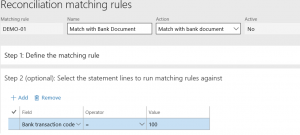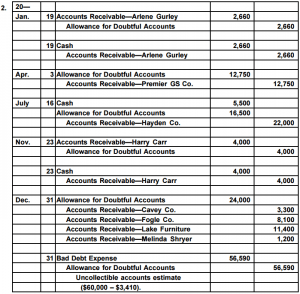Bookkeeping vs accounting: Main differences

These programs are beneficial for new bookkeepers who don’t have much real-world professional experience, but hiring a bookkeeper without one of those credentials can be just as effective for your business. Accountancy starts where bookkeeping ends while auditing is performed after accountancy is complete. Both of them are similar in a way that they both have to rely on the records as maintained by the bookkeeping. Both accountancy and auditing are analytical in nature and are performed to make the most of the financial records. Both bookkeeping and accounting are used interchangeably in the financial world, however, there is a notable difference between bookkeeping and accounting.
Should you hire a bookkeeper or an accountant?
Even while most people handle the tax filing procedure on their own, there are specific circumstances that call for expert assistance. You should seek specialist counsel if you’re self-employed, a small entrepreneur, or have tricky financial situations spanning many jurisdictions. A tax preparer is the best choice for people with a strong grasp of their finances and who need simple tax planning. However, if your financial concerns go beyond simple tax preparation, consider hiring a certified public accountant because of more profound professional skills. An accountant uses the financial data provided by a bookkeeper to interpret, analyze, and report on the financial health of the business. Because they offer more detailed insights that inform business decisions, you don’t want to hire an accountant to only record income and expenses.
Forensic Accountant
To maintain their license, CPAs have to continue taking courses throughout their careers. As you can imagine, there are quite a few differences between bookkeepers and accountants, including https://www.kelleysbookkeeping.com/total-absorption-costing/ the level of education each job requires. If you need an extra hand, you can also work with a team of QuickBooks-certified bookkeepers to help you manage and maintain your books virtually.
What is the best bookkeeping software for small businesses?
In addition to CPA credentials, other common accounting designations are chartered financial analyst (CFA) and certified internal auditor (CIA). Maintaining a general ledger is one of the main components of bookkeeping. The general ledger is a basic document where a bookkeeper records the amounts from sales and expense receipts. A ledger can be created with specialized software, a computer spreadsheet, or even a lined sheet of paper (although we wouldn’t recommend it!). This article will help the students of Commerce in developing an understanding of the differences between bookkeeping and accounting.


Though bookkeeping and accounting are two terms frequently used interchangeably, they are different. A bookkeeper’s responsibilities are mainly transactional, gathering and entering financial transactions. By contrast, an accountant’s responsibilities are analytical and focus on financial performance, using that information to help you better manage your business. Many business owners decide to hire bookkeeping or accounting help when their business finances have become more complicated to manage alone. For a small business, it might make sense to keep an accountant on retainer or just bring them in strategically during the year. For example, some business owners only hire accountants to file their tax returns.
Computer Bookkeeper Related Jobs
In general, a bookkeeper’s role is to record transactions and keep you financially organized, while accountants provide consultation, analysis, and are more qualified to advise on tax matters. In this guide, we’ll explain the functional differences between accounting and bookkeeping, as well as the differences between the roles of bookkeepers and accountants. But in a post-LLM world, purpose-built copilots — trained on the aforementioned data sets and all the precedents set by them — should be able to answer these queries deterministically. Over time, they can also be trained on judgment calls that fit the firm or professional. SPRX and Neo, for example, specialize in R&D tax credits, whereas Materia helps provide better guidance and accelerated research. Bookkeeping, accounting, tax preparation and auditing are fields full of largely formulaic and repetitive exercises that would immensely benefit from generative AI’s gift of efficiency and time savings.
The books of account need to be up-to-date as it is the basis for accounting. The accuracy of bookkeeping determines the accuracy of the accounting process followed by a business. Though bookkeeping and accounting are inseparable, there is a thin line to distinguish between them. Bookkeeping is part of accounting, and accounting has a broader scope than bookkeeping. As a qualified bookkeeper you can work in a finance team or offer your services self-employed. Bookkeepers can also be responsible for other tasks such as reviewing expense reports and assisting in preparing a budget.
You might start your business by handling accounting tasks yourself, then decide to hand off the day-to-day transaction input to a bookkeeper as you grow. In this guide, we’ll explain what bookkeeping is, what accounting is and the key differences between them. By the end, you should be able to decide whether your business needs to hire a bookkeeper, how to determine the depreciation rate accountant or both. Bookkeeping and auditing are similar in the way that both of them deal with the financial records of the business involved. Also, the utmost care and due diligence is the way to go for both a bookkeeper as well as an auditor. The Bookkeeper works for the organization, while an auditor can be external or internal.
- And even if you’re not looking for funding, consider asking an accountant to review your financial statements at least once a year.
- Your bookkeeper will maintain your working ledger in a way that is accurate and easy to understand, and can alert you to red flags as they arise.
- There are critical differences in job growth and salaries between the two.
- Bookkeeping is a series of day-to-day tasks designed to organize, record, and track your business’s financial details.
- Bookkeeping and auditing are similar in the way that both of them deal with the financial records of the business involved.
An accountant usually has a degree or certification (CPA), and is paid better than a bookkeeper. Whether you hire an accountant, a bookkeeper or both, ensure they’re qualified by asking for client references, checking for certifications or performing screening tests. However, you might hire a CIA if you want a more specialized focus on financial risk assessment and security monitoring processes. However, if your accountant does your bookkeeping, you may be paying more than you should for this service as you would generally pay more per hour for an accountant than a bookkeeper. Here’s what you need to know about these two roles to determine which one your business needs.

If you’re only focusing on expenses and not big-picture financial data, you’ll miss out on some strategic opportunities. By recording financial transactions, bookkeepers track your finances so you can view at a glance how much money is entering and leaving your business. And because they’re tax compliant, you can feel confident they’ll keep you on the straight and narrow. If you’re a business owner, understanding the differences between bookkeeping and accounting can be confusing. While you may have heard other people use these terms interchangeably, bookkeeping and accounting are actually two separate (but closely related) business activities. Both bookkeeping and accounting are essential for maintaining the financial health of your company.
And there are real, quantitative tailwinds that make this a particularly critical moment for accounting firms to lean into AI and machine learning. Simultaneously, the profession is attracting fewer job entrants, with the number of U.S. students who complete accounting degrees falling. This means in the coming years, far fewer professionals will be available to handle existing client demand — and firms are already struggling to keep up. Some bookkeepers focus solely on “write up” work, which basically consists of compiling the books quickly, usually for tax preparation purposes. Other bookkeepers provide “full-charge” services and can even serve as a financial controller for your company. Accounting consolidates financial information to make it understandable and clear for all stakeholders.
Bookkeeping is broadly defined as the recording of financial transactions for a business. It’s a key component of the accounting process and can be done as frequently as daily, weekly or monthly. Accurate bookkeeping is vital to filing tax returns and having the financial insights to make sound business decisions. Your accountant, on the other hand, will be an invaluable resource when it comes to understanding the larger financial picture of your business.
The point here is that hiring a CFA means bringing highly advanced accounting knowledge to your business. A CPA is an accountant who has met their state’s requirements and passed the Uniform CPA Exam. They must also meet ongoing education requirements to maintain their accreditation.
While they mainly record financial transactions, bookkeepers are responsible for a variety of duties, which are important for maintaining a successful business. Understanding the distinction between accounting and bookkeeping is essential to managing your business finances. Accounting is not only the systematic recording of financial data but also the analysis, interpretation, and presentation of this data. Forensic accounting combines auditing, accounting, https://www.online-accounting.net/ and investigative skills to evaluate a businesses finances and determine any instances of fraud. Businesses of all sizes need to keep careful track of income, expenses, and transactions, which includes everything from daily sales and invoices to receipts and payroll. Having accurate records and an up-to-date awareness of how your business flows on a short-term basis is a key component for deciding where to go next, and that’s where a bookkeeper comes in.
In general, accounting requires more logic and problem-solving skills than bookkeeping. It relies on bookkeeping to organize and ensure the accuracy of your financial records but then goes a step further to draw conclusions about your business finances. Unlike accountants, bookkeepers are not required to have a bachelor’s degree. They may take some finance-related classes at the college level, but even this is not a requirement. The American Institute of Professional Bookkeepers offers a Certified Bookkeeper designation, which can set professional bookkeepers apart from others.
